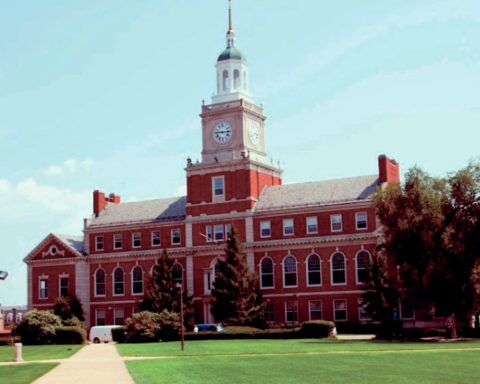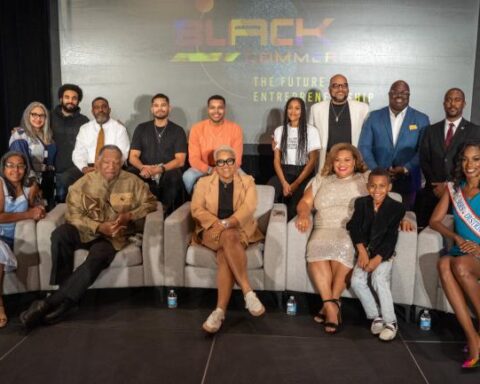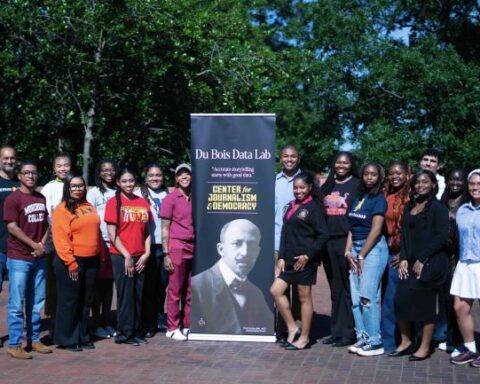By Edward Hill, Jr.
Howard University has a rich tradition of making history, taking things where they have never been. So, it should be no surprise that the University’s latest quest for history making is in the sport of chess.
Three years ago, the Howard Chess club formed and went through the expected changes of first-time growing pains. Not knowing what to expect and with little experience they entered the prestigious Pan Am Collegiate Chess Tournament in 2021. It was online and they won their division, the under 1800 section and had the greatest upset of a higher ranked player by a lower ranked player. The next year in 2022, they failed to win any games.
It was unchartered water in a sport where few Blacks and even fewer HBCU students were involved. Nisa Muhammad, PhD, assistant dean for religious life in the Office of the Dean of the Chapel, embarked on a mission. She found two qualified chess coaches for the team to prepare them for the 2023 Pan Am. Jerald Times, Chess Educator of the Year and 12-year-old chess prodigy, Tani Adewumi.
“This is our third year and we decided to take things to the next level,” she said. “Students competed to be on the teams and with weekly coaching, we were ready. We just had to get to Seattle. Special thanks to Dr. Evers and Student Affairs for the funding to take the 10 students plus me to the tournament. The students also generated interest from a Washington Post article that allowed us to pay the coaches and buy Howard gear so they looked like a team.”
In their return to the Pan American in January, with more than 80 teams and 360 students the Howard students surprised everyone. They won their division, under 1800 section and Team A, rated 43 at the beginning of the tournament left Seattle in eighth place. They even scored several places ahead of better-known and more well-endowed universities, such as the University of Southern California and George Washington University.
“It was quite an achievement for a team that didn’t win any games last year,” Muhammad said.
The club’s slogan is “Black moves first.” Their goal is to be instrumental in paving a path for more Black youth, particularly girls, to excel at chess, become grand masters and eventually tournament directors.
“It is like a mental exercise that helps problem solving.”
The game of chess has enhanced students’ perspectives on life. Strategies used in chess can also be applied to other areas of their lives. The students see chess as developing skills that involve getting started, executing and completing. It is significant that Howard University is the only HBCU to compete in the Pan Am Games.
Cassidy Sparks, a junior political science major from Claremont, California, was one of four Black female students to compete in the games, three of whom were from Howard.
“I started playing chess in elementary school,” she shared. “I gave it up for a while and played rugby, but I found myself wanting to be involved in an intellectual sport so took up chess and joined the chess club.
“Being a Black female, and being from an HBCU and Howard University, I look at it as a challenge to bring more diversity where it is needed. It is an opportunity for us to change the landscape.”
Cassidy explained that there is a direct correlation between chess and academic pursuits. “I have been able to connect chess with the academic aspect of my studies and my life. It is like a mental exercise that helps problem solving.”
Lawrence Custis, a sophomore engineering major from Camden, New Jersey is the Chess club vice president and traveled to Seattle. “What makes Pan-Am so unique to me is its consistency. Every year, I can expect to be in the same room with university students from all around the world. So, I train year-round, waiting 362 days for a chance to win it all.”
Malik Castro DeVarona, a sophomore political science major from Los Angeles is the club president.
“I actually started playing chess in the first grade and then continued until the fifth grade,” he said. “I stopped playing because the program was no longer available. But I was able to resume my participation when I got to high school.”
“We feel that we are creating a path for other Blacks and HBCU students to bring diversity to chess. We are creating a space for Black students.”





